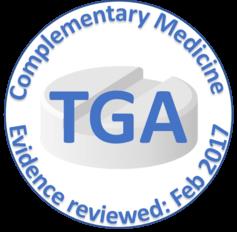One change proposed by the Therapeutic Goods Administration (TGA) is a “stamp of approval” on the packaging and promotional material of some vitamins, minerals, herbs and other supplements to tell you there is enough evidence to back health claims.
:
But the proposed changes do not yet address the need for greater transparency in the regulatory process. For instance, it is not clear whether the TGA’s assessment of evidence to back higher-level health claims for complementary medicines will be publicly available, as they are for prescription medicines.
:
If the TGA implements this package of recommendations, Australia will be a world leader in how complementary medicines are regulated. Despite the substantial and increasing use of supplements, no other country has developed a system that helps consumers and health professionals separate the evidence-based wheat from the chaff, improves confidence in the industry, stimulates more evidence-based products and has the potential to boost exports. (My emphasis)
Which supplements work? New labels may help separate the wheat from the chaff, by Ken Harvey, Adjunct Associate Professor, School of Public Health and Preventive Medicine, Monash University: theconversation.com/which-s...
The above article references the excellent Four Corners program of 13th Feb 2017 on Complementary Medicine in Australia titled 'Swallowing it'. These are my notes from watching the program:
TGA only requires that a company proposing to see a complementary medicine fill out an Online form, saying the product complies with its rules.
Dr John Skerritt, National Manager, TGA
Products (approved for use in complementary medicines sold in Australia - Neil) have been from facilities that have been inspected and approved by the TGA.
They can only contain ingredients that are permitted, so the safety and the quality is there. They can only make certain claims about indications, so they can't cure cancer, they can't fix arthritis, they can't fix asthma. They can only make general claims about wellbeing.. and so we also monitor claims they make on products and their advertising. But that's done in a post market sense after they are on the market.
Reporter and Associate professor Ken Harvey, Department of Epidemiology and Preventive Medicine,Monash University
Of the less than 500 complementary medicines checked last year of the 11,000 on sale, 80% failed, (mainly because no evidence and false advertising claims, efficacy data is missing and is required but some of them had problems with the product and ingredients as well. 13 products were high risk) but the public are never told which ones, because compliance problems are treated as commercial in confidence.
98% of complaints lodged with the independent therapeutic goods advertising complaints resolution panel were upheld.
Neil
